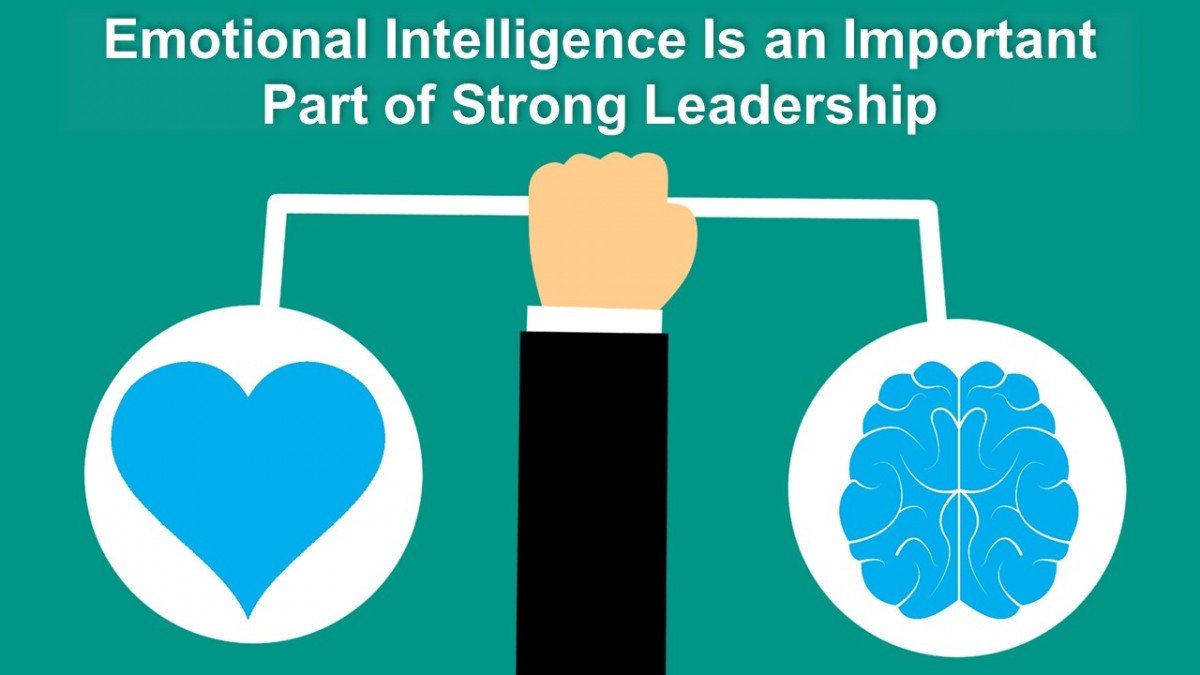
Importance of Emotional Intelligence: Emotional intelligence (EI) plays a crucial role in effective leadership. Leaders who possess high emotional intelligence are better equipped to manage their teams, resolve conflicts, and inspire others toward success. Unlike traditional leadership qualities that emphasize technical skills and intelligence quotient (IQ), the importance of Emotional Intelligence focuses on understanding and managing emotions, both one’s own and those of others. In today’s fast-paced and ever-evolving professional landscape, emotional intelligence is a critical factor in determining a leader’s ability to build strong relationships, foster collaboration, and drive organizational success.
Table of Contents
Understanding Emotional Intelligence

Encompassing the ability to manage relationships effectively and build rapport, social skills include communication, persuasion, conflict resolution, and teamwork. Those with strong social skills are adept at maintaining relationships, influencing others, and navigating complex situations, articulating ideas clearly, and listening actively.
Building on these interpersonal abilities, individuals with strong social skills can build consensus, negotiate effectively, and resolve conflicts constructively. Leaders with strong social skills can build cohesive teams, foster collaboration, and create a positive and productive work environment. They can inspire and motivate others, building strong relationships based on trust and respect.
In addition to social skills, other key components, such as motivation and empathy, are crucial for effective leadership. Motivation drives leaders to pursue goals with passion and resilience. Empathy enables leaders to comprehend the emotions and perspectives of others, thereby fostering trust and cultivating strong interpersonal relationships. Lastly, social skills help leaders communicate effectively, manage teams, and resolve conflicts with diplomacy.
Also Read: Self-Regulation: The Key Factor For Better Mental Health
Key Components of Emotional Intelligence
Emotional intelligence includes four main domains of related competencies:
- Self-Awareness: Understanding one’s strengths, weaknesses, values, and motivations, as well as awareness of how others see you. Self-aware leaders make better decisions and inspire others.
- Self-Management: Leaders with strong self-management regulate emotions, stay composed under stress, and maintain a positive outlook to boost team resilience.
- Social Awareness: This involves empathy and understanding others’ emotions and perspectives, helping to create supportive environments.
- Relationship Management: This includes conflict resolution, influence, and clear communication, enabling leaders to build trust, motivate teams, and foster innovation.
Importance of Emotional Intelligence: The Role of Emotional Intelligence in Leadership Success
Leaders with high emotional intelligence are more adaptable and better equipped to handle workplace challenges effectively. They create a positive work environment by promoting open communication, active listening, and mutual respect. Importance of Emotional Intelligence. Their ability to manage stress, navigate conflicts, and make informed decisions ensures that teams remain focused and productive. Additionally, emotionally intelligent leaders inspire and motivate employees, leading to higher job satisfaction, lower turnover rates, and improved overall performance.
Key Benefits of Emotional Intelligence in Leadership
1. Builds Stronger Relationships
Leaders with high emotional intelligence (EI) forge authentic connections with their teams. They practice active listening, validate team members’ emotions, and cultivate trust. These behaviors foster a workplace where employees feel valued and respected, resulting in increased loyalty and engagement.
2. Enhances Communication
Leaders with strong emotional intelligence easily interpret nonverbal cues. They tailor communication styles to their audience, reducing confusion and encouraging open dialogue.
3. Improves Decision-Making
While logic remains vital, leaders must weigh emotional and cultural dynamics when making decisions. EI enables leaders to anticipate human outcomes, allowing for sounder and longer-lasting decisions.
4. Increases Resilience
Setbacks are inevitable in leadership. Leaders with strong emotional intelligence navigate stress effectively, sustain their perspective during crises, and exemplify emotional steadiness. These attributes help teams stay focused and confident.
5. Inspires and Motivates Teams
Emotional intelligence enables leaders to discern the motivations of their team members. By noticing each person’s strengths and ambitions, leaders align personal goals with organizational objectives, boosting productivity and morale.
How Emotional Intelligence Enhances Decision-Making

Emotional intelligence enhances decision-making by enabling individuals to recognize and manage their emotions, as well as understand the emotions of others, leading to more empathetic, balanced, and effective choices in complex interpersonal situations.
Effective decision-making requires a balance of logic and emotional understanding. Leaders with high EI are better equipped to assess situations objectively while considering the emotional impact of their decisions on employees. Importance of Emotional Intelligence. They remain calm under pressure and make well-thought-out choices that benefit both the organization and its workforce. By managing emotions and avoiding impulsive reactions, these leaders cultivate an atmosphere of trust and stability.
The Impact of Emotional Intelligence on Team Dynamics
A leader’s emotional intelligence has a significant influence on team dynamics. When leaders demonstrate empathy, active listening, and clear communication, they foster a collaborative and inclusive work culture. Employees feel valued and heard, leading to increased engagement and productivity. Additionally, emotionally intelligent leaders handle conflicts with sensitivity, ensuring that issues are resolved constructively without damaging relationships.
Developing Emotional Intelligence as a Leader

Developing emotional intelligence as a leader enhances decision-making by improving self-awareness and empathy, enabling better management of team dynamics and conflict resolution
Emotional intelligence is not an inherent trait but a skill that can be developed over time. Leaders can enhance their EI by practicing self-reflection, seeking feedback, and improving their active listening skills. Importance of Emotional Intelligence. Engaging in mindfulness exercises, stress management techniques, and empathy-building activities can also contribute to higher emotional intelligence. Organizations that prioritize EI training for leaders often experience improved employee morale, stronger leadership effectiveness, and a more harmonious work environment.
Conclusion
Emotional intelligence is essential for successful leadership. Leaders with strong self-awareness, self-regulation, motivation, empathy, and social skills are better equipped to handle challenges, inspire their teams, and foster positive work environments. As workplaces evolve, emotional intelligence will distinguish effective leaders. By focusing on emotional intelligence, leaders make more informed decisions, strengthen their teams, and achieve greater organizational success.


2 thoughts on “Unlock the essential Importance of Emotional Intelligence in Leadership: Key Benefits and Insights”